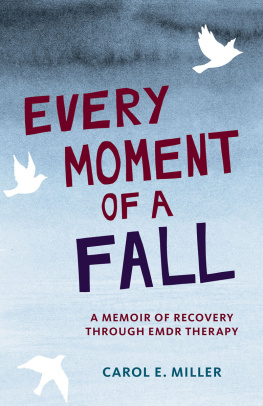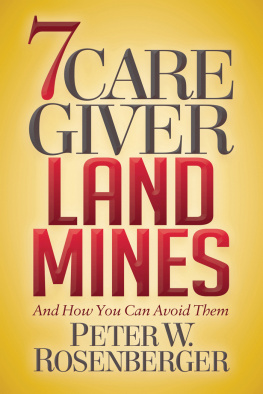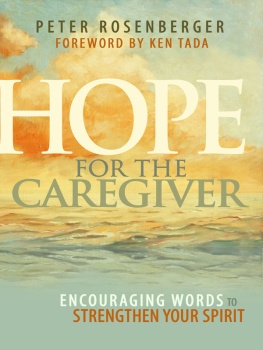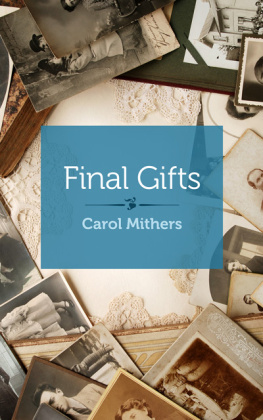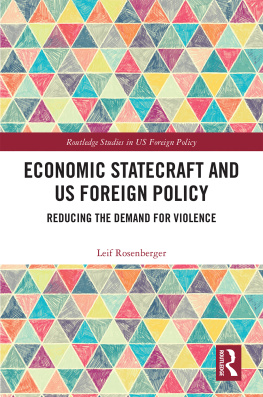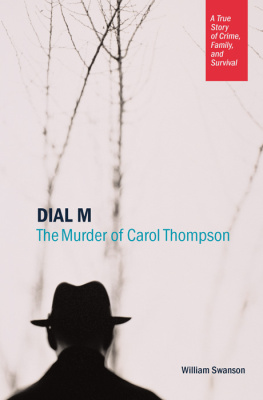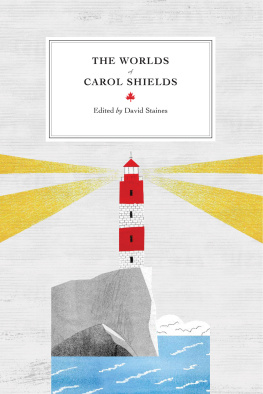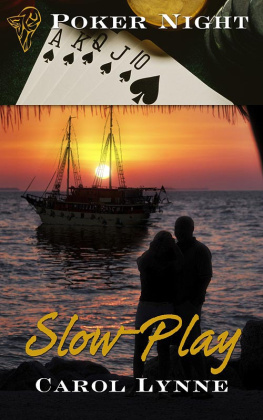Carol Rosenberger - To Play Again: A Memoir
Here you can read online Carol Rosenberger - To Play Again: A Memoir full text of the book (entire story) in english for free. Download pdf and epub, get meaning, cover and reviews about this ebook. year: 2018, publisher: She Writes Press, genre: Science fiction. Description of the work, (preface) as well as reviews are available. Best literature library LitArk.com created for fans of good reading and offers a wide selection of genres:
Romance novel
Science fiction
Adventure
Detective
Science
History
Home and family
Prose
Art
Politics
Computer
Non-fiction
Religion
Business
Children
Humor
Choose a favorite category and find really read worthwhile books. Enjoy immersion in the world of imagination, feel the emotions of the characters or learn something new for yourself, make an fascinating discovery.

- Book:To Play Again: A Memoir
- Author:
- Publisher:She Writes Press
- Genre:
- Year:2018
- Rating:5 / 5
- Favourites:Add to favourites
- Your mark:
- 100
- 1
- 2
- 3
- 4
- 5
To Play Again: A Memoir: summary, description and annotation
We offer to read an annotation, description, summary or preface (depends on what the author of the book "To Play Again: A Memoir" wrote himself). If you haven't found the necessary information about the book — write in the comments, we will try to find it.
To Play Again: A Memoir — read online for free the complete book (whole text) full work
Below is the text of the book, divided by pages. System saving the place of the last page read, allows you to conveniently read the book "To Play Again: A Memoir" online for free, without having to search again every time where you left off. Put a bookmark, and you can go to the page where you finished reading at any time.
Font size:
Interval:
Bookmark:
To Play Again


Copyright 2018 by Carol Rosenberger
All rights reserved. No part of this publication may be reproduced, distributed, or transmitted in any form or by any means, including photocopying, recording, digital scanning, or other electronic or mechanical methods, without the prior written permission of the publisher, except in the case of brief quotations embodied in critical reviews and certain other noncommercial uses permitted by copyright law. For permission requests, please address She Writes Press.
Published 2018
Printed in the United States of America
Print ISBN: 978-1-63152-326-7
E-ISBN: 978-1-63152-327-4
Library of Congress Control Number: 2017950295
For information, address:
She Writes Press
1563 Solano Ave #546
Berkeley, CA 94707
Cover design Julie Metz, Ltd./metzdesign.com
Interior design by Tabitha Lahr
She Writes Press is a division of SparkPoint Studio, LLC..
Dedicated to the memory of the heroic Amelia DaCosta Stone Haygood (19192007). Amelia believed that the impossible could become possible and helped to make it so for many. Her remarkable life was devoted to enabling and encouraging others in significant ways. Amelias unique insight and generous participation transformed the arc of my own life, and I am honored to recount, within this memoir, a few of the many stories that could be told about my dear friend.


T hats something no one can take away from you! said the tall man, whose large hazel eyes were glistening with tears. He bent over slightly and gripped my hand so firmly that I couldnt help wincing. Oh, sorry, I mustnt hurt those valuable hands! he added and relaxed his grip, looking down at my hand as if he expected it to have extra fingers or other strange properties.
There was still a long line of people who had come backstage to greet me after my performance, but he lingered for a moment longer. It was intermission, and the musicians of Michigans Pontiac Oakland Symphonythe men in tails and the women in black gownswere milling around, playing their warm-up scales and snatches of music for the second half of the program. I could hear somebody humming a melody from the Beethoven Third Piano Concerto, which wed just played. The year was 1955. I was twenty-one, and felt on top of the world.
Theres nothing quite like the afterglow of performance. You work yourself up to a nervous pitch beforehand; you walk on stage with exaggerated calm; you bow and smile to the audience, trying to keep your hands from shaking as you begin. You hear the sound as if its coming from somewhere else, as if its not really connected with your hands on the keyboard.
But gradually the music takes over, and the nervousness is transformed into excitement. It heightens everything you want to express about the music embedded so deep within your being; and suddenly you feel that youre one with the music and the audience. Theres nothing else in the world but that current from the source to the sound and back, a pulsing current that seems to stretch toward eternity. Thats what your entire life is about. Youve always known that, but you know it more clearly at such moments.
The man with the hazel eyes was right, I had thought, as he walked away. Usually backstage comments dont register. Im too high after the performance. I remember faces and expressions and handclasps and embraces, but words usually get lost in the music Ive just played. I remembered that comment, though. It was a little like a reassurance of immortality; my piano playing would always be there, no matter what.
Id been playing the piano for as long as I could remember. My earliest memory is of the keyboard high above my head as I stood in front of it, holding onto it for support. I still remember the excitement of reaching up to the smooth white keys and pressing one of them. The sound drew me into it; I floated with that sound, as it seemed to fill me and the space around me. Even then, I couldnt get enough of that sound and the thrill of producing it.
After nineteen years of bonding with the instrument and many performances over the latter half of those years, I still felt that way about playing the piano. But now it was more than my greatest joy. It was me. It was my very identity. If anyone had asked me that key psychological question, Who are you? my immediate response would have been, Im a pianist. Then I might have thought to add, Im Carol Rosenberger.
I was on my way, as one says of a concert career. Literally, I was on my way to Europe, where I planned to enter some of the big competitions, which have served as important springboards for young talent. I also wanted to play for two of my particular heroes among twentieth-century musicians: Nadia Boulanger and Walter Gieseking.
I wonder if there is a time for every young person when the dream seems perfectwhen one has experienced enough to know what is possible and has not yet discovered what is impossible.
Its incredible, as I look back on the day when the most shattering event of my life occurred, that I had no premonition of disaster, no vague unease. Instead, I felt almost euphoric that warm August morning as I climbed the elegant curve of the steps outside the Palace of Fontainebleau in the beautiful little French town of the same name.
The legendary Nadia Boulanger, revered teacher of many greats among twentieth-century classical composers (Aaron Copland, David Diamond, Walter Piston, Roy Harris, Elliott Carter, to name only a few), was the director of the music conservatory housed in one wing of the palace. I was thrilled to have history all around me. It was here, on these very steps, that Napoleon had said adieu to Josephine. As a young person from a young culture, I wanted this older culture to reveal some of its secrets. Surely Europe, with its direct line to the past, must hold all sorts of clues to the mysteries of Art and Life. I didnt want to miss anything.
I was thinking that morning about my first session with the formidable Boulanger, known to everyone as Mademoiselle, which had taken place just a few days before. She didnt have much time for private sessions during the summer, but she had listened carefully as I played the Chopin B-flat Minor Sonata for her. Her gray-white hair was drawn back into an ascetic bun, and her eyes burned with the intensity of her own devotion to music. Mademoiselle had asked me many questions in her French-accented English. She wanted to know all about my repertoire, what I thought my strengths were, and what needed to be filled in. She had said that she found my playing sensitive and intelligent and pointed out some musical connections that I might have missed. Best of all, she made an appointment to hear me play again. As I was about to leave she added, You will go far.
And now I was on my way to the practice room where I spent eight hours a day of concentrated but exhilarating work. When one says practice room, any musician or onetime student of music automatically thinks of a tiny cubicle, bare of furniture, with piano and bench literally on their last legs, where sound ricochets mercilessly to and fro, and ear fatigue is chronic. But this practice room was a large, airy, high-ceilinged room with a fine Erard grand piano in one corner. The room looked out on one of the palace gardens; and I could sometimes hear, mingled with scraps of sound from pianos, voices, and violins in other practice rooms, one of the brilliant peacocks screaming from below.
Next pageFont size:
Interval:
Bookmark:
Similar books «To Play Again: A Memoir»
Look at similar books to To Play Again: A Memoir. We have selected literature similar in name and meaning in the hope of providing readers with more options to find new, interesting, not yet read works.
Discussion, reviews of the book To Play Again: A Memoir and just readers' own opinions. Leave your comments, write what you think about the work, its meaning or the main characters. Specify what exactly you liked and what you didn't like, and why you think so.

